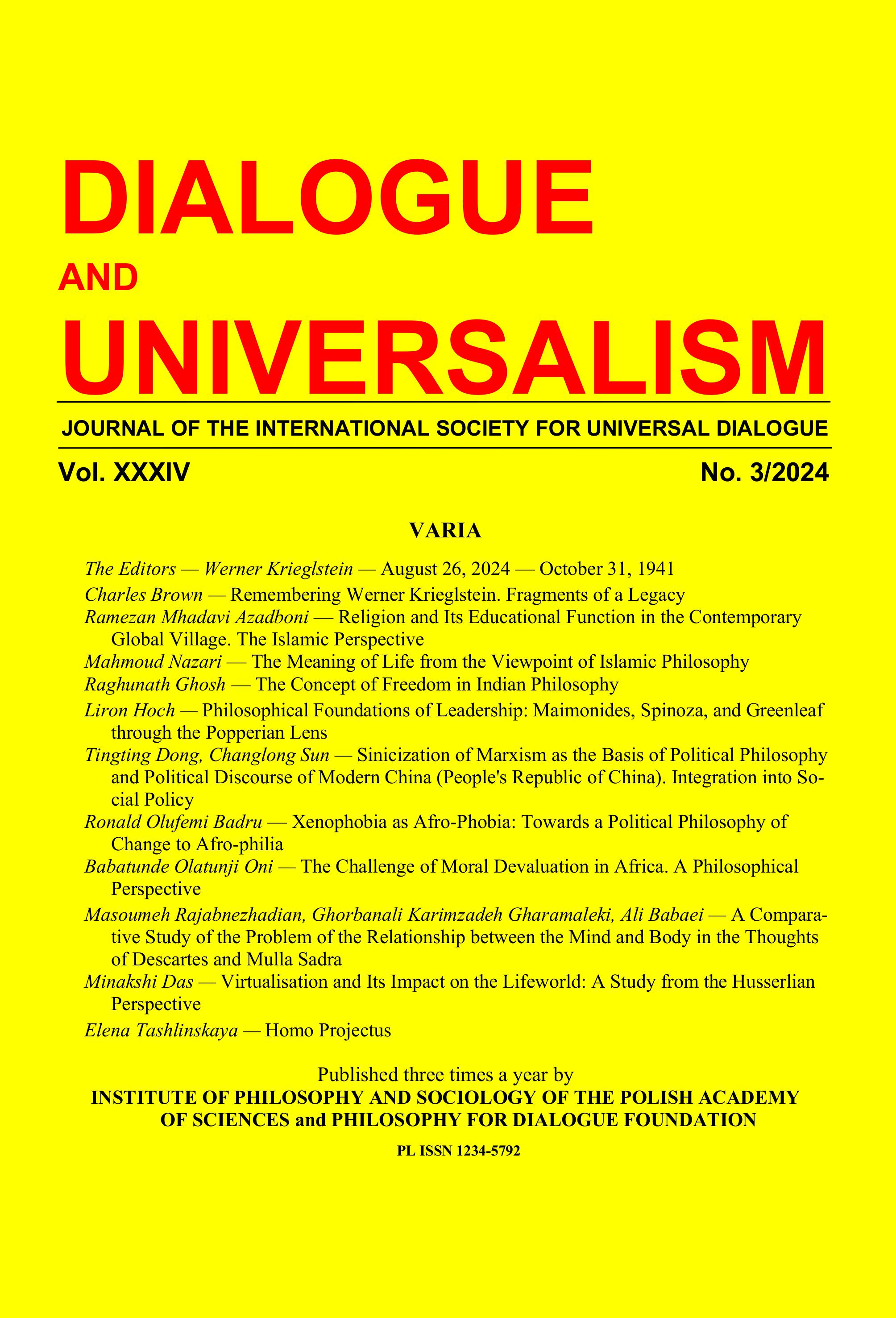SINICIZATION OF MARXISM AS THE BASIS OF POLITICAL PHILOSOPHY AND POLITICAL DISCOURSE OF MODERN CHINA (PEOPLE’S REPUBLIC OF CHINA). INTEGRATION INTO SOCIAL POLICY
SINICIZATION OF MARXISM AS THE BASIS OF POLITICAL PHILOSOPHY AND POLITICAL DISCOURSE OF MODERN CHINA (PEOPLE’S REPUBLIC OF CHINA). INTEGRATION INTO SOCIAL POLICY
Author(s): Tingting Dong, Changlong SunSubject(s): Philosophy, Social Philosophy
Published by: Instytut Filozofii i Socjologii Polskiej Akademii Nauk i Fundacja Filozofia na Rzecz Dialogu
Keywords: China policy; Maoism; pragmatism; revolution; social theories
Summary/Abstract: The study compares the changes in the theory of Marxism that took place in Europe (in the form of neo-Marxism and its movements, in particular the Frankfurt School) and the Sinicized version of Marxism. The study also examines how Sinicized Marxism was reflected in the political discourse and political philosophy of modern China (People’s Republic of China) and is reflected in social policy in the country. Studying the influence of socio-economic changes and the history of the people on ideological changes allows us to identify several principles of Sinicized Marxism, which on an ongoing basis determine social policy and foreign relations. This is, first, etatism and the dominance of state interests over private ones, which limits human rights and national self-determination, but preserves the integrity and stability of the state, which protects the interests of the people.
Journal: Dialogue and Universalism
- Issue Year: 2024
- Issue No: 3
- Page Range: 71-84
- Page Count: 14
- Language: English
- Content File-PDF

